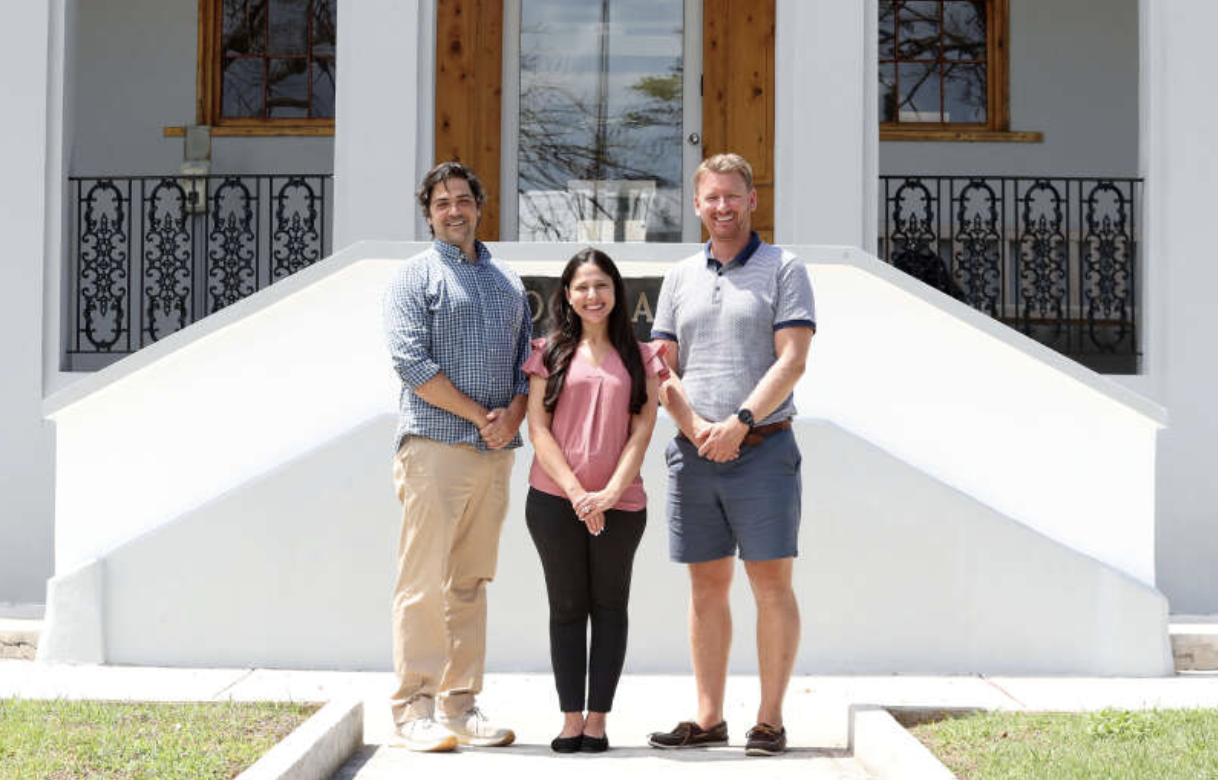Valentina Contesse, a visiting literacy expert, centre, is at Saltus providing teachers with professional development. Mark Pacheco, assistant professor at the School of Teaching and Learning in the College of Education at the University of Florida, left, and Jesse Sheppard, director of curriculum at Saltus (Photograph by Blaire Simmons)
Source: The Royal Gazette
By Sarah Lagan
A United States-based literacy expert this week provided professional development to teachers on a curriculum said to be significantly improving reading outcomes.
Valentina Contesse, coauthor of the programme at the University of Florida Literacy Institute, led two days of training at Saltus and Somersfield Academy — both of which have adopted the programme at the primary level.
Dr Contesse was invited to the island by Mark Pacheco, assistant professor at the School of Teaching and Learning in the College of Education at the University of Florida, and a resident of Bermuda.
UFLI is an effort by the university faculty, students and staff to improve literacy outcomes for children learning to read, that focuses on teacher and reader development.
Jesse Sheppard, the director of curriculum at Saltus, said that within one full academic year of implementation of the UFLI programme, the school had seen marked improvements in student literacy. He said: “We have had tremendous success.”
Mr Sheppard explained that progress could be measured with data from three checkpoints carried out using the Dibels, or Dynamic Indicators of Basic Early Literacy Skills screening.
He said: “It has been designed to go from foundation to P3 — but, based on data, we are taking it up into higher year levels to meet the needs of students. There is really great use in all primary grades.”
Mr Sheppard said the programme was “led by the science of reading”, with older techniques, such as the Fountas and Pinnell system, no longer in use at the school.
“Some of the strategies used in systems like that are known to not be as effective as the systematic approach of UFLI, which is research and evidence-based,” he said.
Implementation took about a year at Saltus and the programme started last October.
The school was able to implement the curriculum using resources provided by UFLI, including a manual and online videos.
Mr Sheppard added: “We have seen in our youngest learners, in their ability to decode words, their recognition of sounds, letters, graphemes and other factors, major improvement in a very short amount of time, far shorter that we would have seen with Fountas and Pinnell.”
Since implementing UFLI’s techniques, there were notable increases in Saltus students meeting or exceeding grade-level benchmarks.

The science of reading: Valentina Contesse, coauthor of the University of Florida Literacy Institute reading syllabus, pictured standing, delivers professional development on the program to the primary teachers at Saltus (Photograph supplied)
Following the Budget in February, Becky Ausenda, executive director of the Bermuda Education Network, which has expertise in curriculum development, said: “Recent educational research has conclusively demonstrated that the ‘whole language’ approach is ineffective for many children, emphasising the urgency for a shift towards evidence-based methodologies.
“In line with this, the upcoming introduction of a phonics programme from the University of Florida Literacy Institute in Bermuda's public primary schools is a significant step towards addressing this fundamental need.
“To propel the transformation of the education system, the Government must prioritise this initiative in its Budget, providing not only curriculum materials but allocating additional teaching resources, coaches and a project management team, which will be required for successful implementation.”
The Department of Education has been approached about whether the option is still being considered for Bermuda’s public schools.
• For the full article and more information about UFLI, visit ufli.education.ufl.edu

